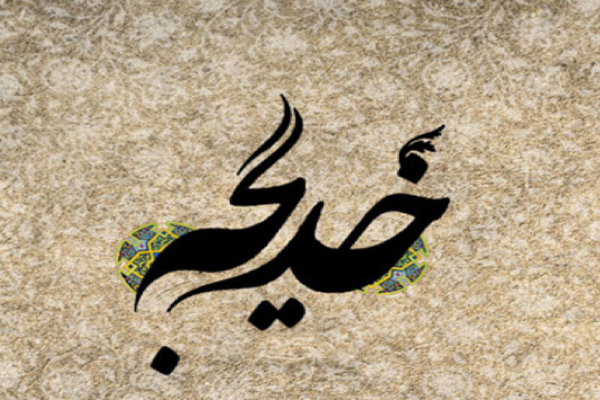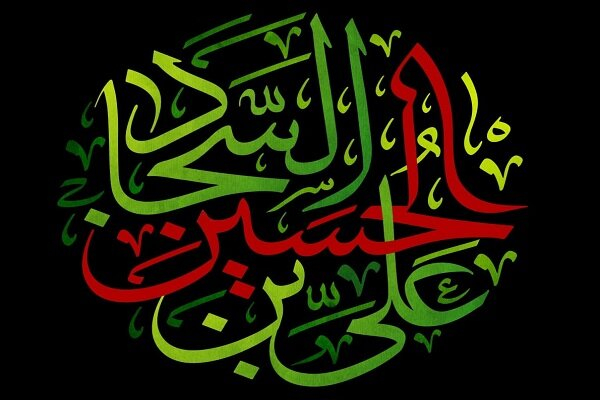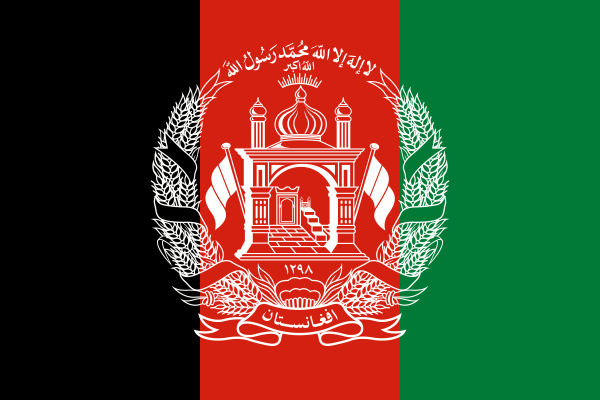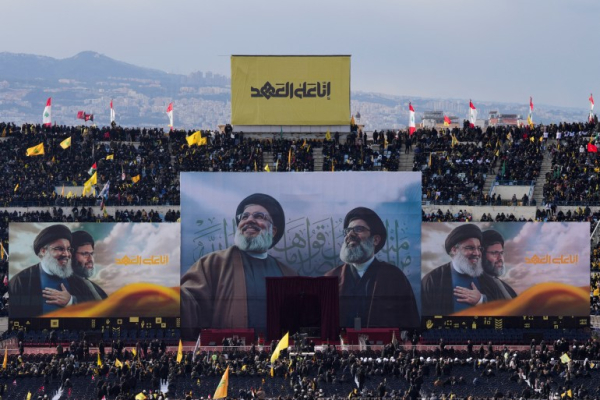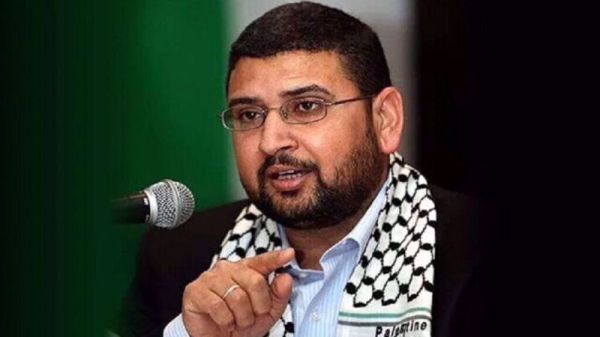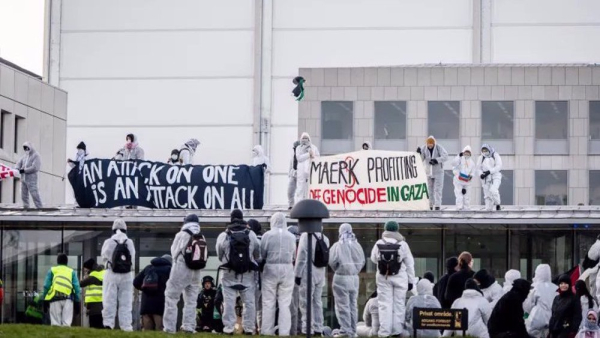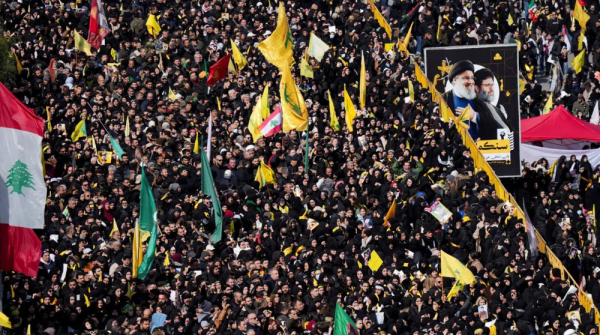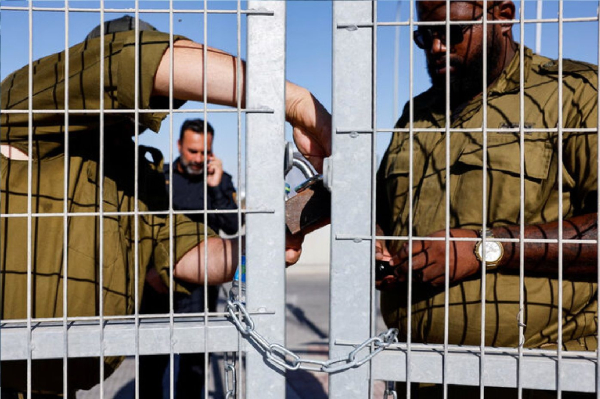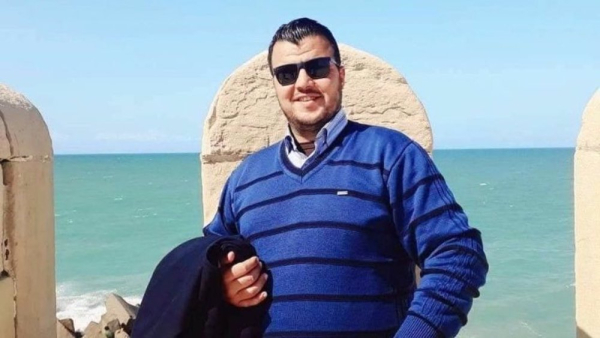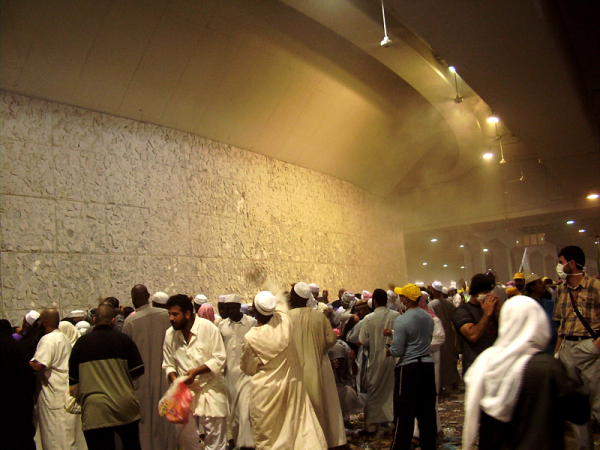zarezadeh
Knowing the first Muslim woman
In the ups and downs of Islam, less than a lady, such as Hazrat Khadijeh, the noble wife of the Prophet (peace be upon him) - has shone. The benefit of the supreme human attributes and the behavior of his transcendent insight made him such a person that, until years after the death of the Prophet (peace be upon him), he was tears on his blessed cheeks and remembered him as great. .
The family that raised the Prophet (PBUH) was among the largest Arab tribes in terms of family dignity and relatively relatives. The family had influence in all Hejaz. The great works of decency and dignity were from the deeds and speech of Prophet Khadijeh.
The Prophet was from the Hashem tribe and his father and relatives were the rich of Quraysh. His father was Khuildben Asad Qureshi. Her mother was Fatima's daughter bin Asem.
Hazrat Khadijeh was the first Muslim woman, one of her greatest and most prominent moral characteristics can be mentioned the patience of this great lady of Islam, it is said that Islam has been published with two things; The first sword of Prophet Ali (PBUH) and the second wealth and forgiveness of Prophet Khadijeh.
Prophet Khadijeh is one of the four perfect women in the world, the first and best wife of the Prophet (peace be upon him) and the mother of Prophet Fatima Zahra.
Services of Khadijeh Salamullah to Islam:
The Prophet performed many services to the noble and Islam of Islam for the past five years of living with the beloved Prophet of Islam. Financial, spiritual, emotional support for Prophet Muhammad (peace be upon him), the Prophet's affirmation and confirmation of a time when no one approved him and his help against the persecution of the polytheists is some of these valuable services.
After marrying the Prophet (peace be upon him), Khadijeh (PBUH) gave him his property to consume it any way. The beloved Prophet of Islam says: "There was no wealth as much as I had as the wealth of Khadijeh. »
Prophet Khadijeh, this noble lady, not only believed in the Prophet's mission from the depth of life, but also helped her against the hardships and denial of the polytheists and malevolent. As long as he was alive, he did not allow the persecution of the polytheists to be hard on the Messenger of Allah. When the Prophet (peace and blessings be upon him) came home with a burden of sadness and sadness, Prophet Khadijeh (PBUH) comforted him and removed concern from his mind.
The property of Prophet Khadijeh (PBUH) as an appropriate tool from the beginning was serving Islam and its progress. Interestingly, the last part of Khadijeh's property was spent by the Amir of the Believers on a trip to Medina. Most of the Muslims were traveled with the property of Prophet Khadijeh. The last of them was the café that Amir al -Mu'minin (AS) took over.
Prophet Khadijeh (peace be upon him) has self -thought and modernity. Although the Lady of Makrram, though of the original Arab and the Arab dignity of the time, they had admirable privileges and were always trying to grow and cultivate such human and godly attributes.
Ali ibn al-Husayn al-Sajjad (pbuh)
Ali ibn al-Husayn al-Sajjad (pbuh)
Born: January 4, 658 AD, Madinah, Saudi Arabia
Died: Madinah, Saudi Arabia
Children: Muhammad al-Baqir, Zayd ibn Ali, Hussain al-Asghar Ibn Ali-e-Zainul Abideen · See more
Parents: Husayn ibn Ali, Shahrbanu
Grandchildren: Ja'far al-Sadiq, Sultan Ali, Yahya ibn Zayd, Ahmad ibn Isa ibn Zayd, Husayn ibn Zayd · See more
Full name: Ali ibn Hussain ibn Ali
Place of burial: Al Baqi Cemetery, Madinah, Saudi Arabia
Ali al -Sajjad was born in the fourth Shiite Imam about 658 AD. The postparty of Islam is the dear Islam. He survived the divine miracle in the year 680, in which Mom Hussein and his little convoy on a massacre by Khalifa Yazid I (R 680-683). After the battle, al -Sajjad (as) and other survivors were treated and transferred to the capital of Amir Damascus. Finally, al -Saad al -Islam (AS) was allowed to return to his hometown of Medina, where he led the isolated life, without participating in the Fitna II civil war, without attending countless pro -favorable uprisings. Instead, he devoted his life to worship and learning, and even among the Sunnis, as a leading authority in the Islamic tradition (hadith) and law (FIQH). He was also known for his virtue and personality. Politically lifeless Imam al -Sajjad (PBUH) had few followers until the end of his life, because many Shiite Muslims were initially drawn to the anti -Umiad movement.
Ali al -Sajjad was poisoned by the Umayyads around 712. Some lawsuits attributed to al -Sajjad have been collected in al -Sahfah al -Sajjadiyah which is highly regarded by the Shiites. Ali al -Sajjad (as) is seen by the Shiite community as an example of patience and perseverance and worship.
Islamic Republic of Afghanistan
The Islamic Republic of Afghanistan was a presidential president in Afghanistan from 2004 to 2021. The country was established to temporarily replace Afghan (2001-2002) and Transition Governments (2002-2004), and the invitation of the 2001 United States in Afghanistan in 2001. Therefore, the virtual way that the Taliban has been lovingly rebuilt from Afghanistan. However, on August 15, 2021, the country was repaid by the Taliban, which was the longest war in US history.
This led to the excessive Islamic Republic, led by President Ashraf Ghani, and restoring the Taliban under the control of the Taliban. While the United Nations still recognizes the Islamic Republic as the legal government of Afghanistan, this regime controls the overthrow of counting, and not DOS is open to exile. This is not effectively disappeared. Your Islamic emayete is the government governing legal. The US agreement, signed in Qatar on February 29, 2020, was one of the important events that led to the collapse of the Afghan Natolus forces (Ansf). Following the deal, the use of Ansf's number of air strikes and deprived Ansf from a critical margin in the fight against the Taliban's uprising, which led to the Taliban in Kabul.
Following the 9/11 attacks, the United States and several allies invaded Afghanistan and overthrew the first Taliban (recognized) government in support of the opposition of the Northern Alliance. Thereafter, a transitional government was formed under the leadership of Hamid Karzai. After 2003 Loya Jirga, a presidential republic of the Islamic Republic was announced under the new constitution and Karzai was elected president for a full term. Meanwhile, the US-led international coalition helped maintain domestic security, and gradually transferred the defense to the Afghan armed forces after 2013-14.
However, Taliban forces controlled the control of various parts of the country and the civil war continued. The Taliban, with alleged support from Pakistan, were re-grown as a rebellion and increased attacks on Afghan and coalition forces after 2007-2007. These problematic records of human rights and women's rights in Afghanistan, with numerous abuses by both parties, such as the killing of civilians, kidnappings and torture. Given the government's widespread confidence in US military and economic assistance, some classified the country as an American customer country and gradually lost control of the rural suburbs after concluding the freedom tolerance operation.
At the time of NATO's withdrawal in 2021, the Taliban launched a massive military strike in May 2021 and allowed them to control the following three and a half months. The Afghan National Army was quickly disintegrated. The republic's institutions were effectively fell on August 15, 2021, when Taliban forces arrived in Kabul and Afghan President Ashraf. Immediately thereafter, the former vice president of Saleh Saleh declared himself President of Afghanistan and declared the Republican resistance against the Taliban. However, on September 6, 2021, Saleh also fled to Tajikistan.
As of 2022, scattered fighting between opposition groups and the Taliban continue to occur. On 13 March 2022, the Afghanistan Freedom Front, an ethnically diverse anti-Taliban military group formed, and has since conducted several attacks on the Taliban, including a missile attack on Bagram Airfield, in which six Taliban soldiers were killed and two were wounded.
In June 2022, an uprising began in the Balkhab District of the Sar-e Pol Province. Hazara rebel Mehdi Mujahid, the Taliban-appointed head of intelligence of the Bamyan Province had been expelled from the position after criticizing the closure of girls' schools and continued demanding for equality to Hazaras and other Shia Muslims. He left the Taliban, declaring war on them, and began to gather rebels. Supported by the NRF and several political parties, the rebels seized Balkhab and controlled the entire district by 13 June 2022. On 23 June 2022, the Taliban began fighting to take back the district. The uprising ended when the Taliban recaptured Balkhab and Mujahid was killed.
On the one year anniversary of the Fall of Kabul, the NRF conducted various hit-and-run attacks on Taliban militants. Several other groups, such as the Ahmad Khan Samangani Front and the Afghanistan Islamic National & Liberation Movement have also conducted attacks against the Taliban.
In 2020, there were over 16,000 schools in the country and roughly 9.5 million students. Of this, about 60% were males and 40% females. This was an increase from 900,000 exclusively male students in 2001. Over 174,000 students were enrolled in different universities around the country. About 21% of these were females. However, former Education Minister Ghulam Farooq Wardak had stated in 2013 that the construction of 8,000 schools was still required for the remaining children who were deprived of formal learning.
As of 2018 the literacy rate of the population age 15 and older was 43.02% (males 55.48% and females 29.81%). The Afghan National Security Forces received mandatory literacy courses as part of their training.
‘We are in the covenant’: Hezbollah leaders' funeral becomes a rallying cry for resistance
By Ghadir Khumm
The funeral procession of martyred Hezbollah leaders Sayyed Hassan Nasrallah and Sayyed Hashem Safieddine at Beirut’s Camille Chamoun Sports City Stadium was an exemplary demonstration of people’s resolve and conviction to carry forward the torch of resistance.
The event was incredibly emotional, with an estimated attendance of over 1.4 million people who flocked to the Lebanese capital from across the world, defying threats and restrictions.
Hundreds of thousands filled the stadium in Beirut and its surrounding areas, while many traveled from southern Lebanon and the Bekaa, some even walking long distances to Beirut to arrive on time.
The stadium quickly reached capacity, leaving tens of thousands standing in densely packed crowds outside. The atmosphere was marked by a sea of flags representing various movements and nations.
The most prominent were Hezbollah’s red and yellow flags, with red symbolizing the blood of the martyrs. Alongside them, the Lebanese flag and those of Iraq’s Popular Mobilization Forces (Quwwāt al-Hashd ash-Sha’bī), and the Lebanese Amal Movement (Harakat Amal) were also raised.
The flags of the Islamic Republic of Iran, Ireland, Tunisia, Turkey, Algeria, Yemen (including its resistance slogan), Syria, and Palestine also appeared during the massive funeral ceremony, reflecting the solidarity and significance of the moment as millions gathered to honor the martyred Hezbollah leaders.
A particularly striking moment during the funeral procession occurred when four Israeli occupation jets violated Lebanese sovereignty as the coffins of Martyr Nasrallah and Martyr Safieddine were being carried around the stadium, passing among the hordes of people.
As the warplanes flew over the funeral, the attendees defiantly chanted: “Death to Israel, Death to America, Labbaik Ya Nasrallah” (We are at your service, O’ Nasrallah). This act was not only a humiliation for the cowardly Zionist enemy but also a testament to the resilience and fearlessness of the people.
The Lebanese people had already endured immense suffering, especially late last year, following relentless bombings on southern Lebanon and Dahiyeh suburbs. Homes and buildings were leveled, and the pager terrorism claimed more than a dozen lives, leaving over 4,000 injured, including children.
Just weeks later, the martyrdom of Sayyed Nasrallah added to the nation’s grief. Yet, despite all this pain and loss, the presence of enemy warplanes over the funeral held no weight.
It was meant as a form of intimidation, but the people stood unshaken, reaffirming their pledge of allegiance to the principles and values that the martyred leaders upheld all their lives.
A significant moment during the funeral was the call from Palestinian resistance factions in Gaza and Palestine urging their people in Lebanon to attend the funeral procession of the two martyrs.
Attendees waved Hamas flags with other political and resistance banners, which not only silenced sectarian debates but also challenged those who supported Hamas while opposing Hezbollah.
The Islamic Jihad Movement in Palestine also issued a statement declaring that the nation was bidding farewell to two iconic leaders of the resistance who had sacrificed their lives and their sons on the path to occupied Al-Quds, urging participation as a tribute to Gaza’s liberation struggle.
At the same time, Palestinians continued to honor the memory of Martyr Nasrallah and his comrades, even in the face of ongoing genocidal war, remembering their glorious sacrifices.
In stark contrast, Palestinian Authority forces raided a memorial gathering, tearing down Hezbollah flags, assaulting attendees, and detaining a journalist in an attempt to silence expressions of solidarity.
Palestinian resistance factions, including the Democratic Front for the Liberation of Palestine (DFLP), condemned the brutal crackdown, calling it a violation of civil liberties and a betrayal of national unity at a time when Palestinians should be united against the Zionist occupation.
Yet, despite these attempts to suppress their voices, the people's unwavering commitment to Sayyed Nasrallah’s illustrious legacy proved that his influence transcends borders.
These expressions of solidarity extended far beyond Lebanon. In New York City, a vigil was held in response to the resistance’s call to commemorate Sayyed Nasrallah’s martyrdom.
Attendees at the vigil not only paid tribute but also faced off against Zionist vigilantes and fascist trouble-mongers, standing firm in their defiance. Images displayed at the event included figures of Sayyed Nasrallah, Sayyed Safieddine, Yahya Sinwar, Ismail Haniyeh, and Qassem Soleimani, symbolizing the interconnected struggle of resistance movements across the region.
Back in Beirut, amid the sea of mourners, a deeply moving sight was that of Mohammad Mahdi Nasrallah and Mohammad Jawad Nasrallah, sons of Sayyed Nasrallah, bidding adieu to their father.
Standing close to the coffins on top of a bud was Hajj Abu Ali, Sayyed Nasrallah’s longtime and loyal bodyguard. His presence was a pleasant surprise as many thought he was martyred.
Abu Ali stood inside the truck, close to the coffins, gently wiping people’s keffiyeh and clothing on them before handing them back to the mourners.
Later, he was seen sitting alone inside the truck beside the coffins, a moment both beautiful and heartbreaking. A man who had dedicated his life to protecting the Hezbollah leader remained by his side until the end.
This funeral procession was not merely an emotional farewell. It was a profound declaration of unity, resilience, and unwavering loyalty to the resistance movement and its fallen leaders.
It was a moment that resonated far beyond Lebanon, sending a clear message to the world—and to Zionist media in particular—about the deep love the people have for Hezbollah. This is a people who cannot be broken, for they do not see martyrdom as an end, but as the beginning of an eternal legacy.
Though the martyrdom of Sayyed Nasrallah leaves a wound that weighs heavy on the heart, his legacy transcends time. He has been, and will always be, an enduring source of inspiration for millions.
His voice will echo in every battle for justice, his path will be walked by future generations until the liberation of Palestine, and his light will never fade.
Ghadir Khumm is a university student in Canada pursuing a master’s degree, focusing on postcolonial studies while dedicating her time to international relations.
(The views expressed in this article do not necessarily reflect those of Press TV)
Press TV’s website
Hamas: Netanyahu tampering with fate of Israeli captives
A senior official of Hamas says the Palestinian resistance movement has issued a stern warning to the Israeli prime minister over postponing the Gaza prisoner exchange deal.
Abu Zuhri said on Sunday that Benjamin Netanyahu of Israel was tampering with the fate of Israeli captives.
His remarks came after Netanyahu announced the postponement of the exchange deal, claiming that Hamas treated Israeli captives held in Gaza in an insulting manner.
Rejecting his false claim, the Hamas official said Israeli captives are treated with respect.
Abu Zuhri said an Israeli captive kissing the head of the resistance fighters was a practical response to Netanyahu’s lies.
He said what the resistance does when handing over the captives is by no means offensive or insulting.
The Hamas leader noted that the movement is not weak and has not been defeated.
He stressed that Israel cannot dictate its conditions on Hamas and by delaying the exchange.
He added that Netanyahu is not only tampering with the agreement but also with the fate of the captives.
In a statement on Sunday, Hamas political bureau member Izzat Al-Rishq said Hamas strongly condemns the occupying regime’s decision to delay the release of the abductees.
“This decision once again exposes the occupation’s evasions and its renouncement of its commitments,” he said.
Al-Rishq argued that Israeli prime minister Benjamin Netanyahu’s decision reflects a deliberate attempt to obstruct the agreement, constitutes a clear violation of its terms, and demonstrates the regime’s unreliability in fulfilling its commitments.
The negotiations for the second phase of the ceasefire agreement between Hamas and the Israeli regime are due to end on March 1.
After failing to achieve any of its war objectives in Gaza, Israel was forced to agree to a ceasefire deal with Hamas which went into effect on January 19.
The six-week first phase saw the release of Israeli captives in exchange for hundreds of Palestinian abductees, the partial withdrawal of Israeli troops from Gaza, and delivery of aid into the territory devastated by the 15 months of relentless Israeli bombardment.
The second phase, if finalized, would see the release of all the Israeli captives and a permanent ceasefire.
Basem Naim, a senior member of the Hamas political bureau, stated that this is not the first time that the regime has tried to undermine the agreement.
Earlier this month, Israeli authorities confirmed to The New York Times that Hamas’s reports about the regime’s violations of the deal were accurate. But Netanyahu’s cabinet officially denied them.
Netanyahu has threatened to resume the war on Gaza and has said he is “committed” to Trump’s proposal to “take over” the Strip and displace its Palestinian residents.
Press TV’s website
Danish police arrest 20 people protesting to stop military shipment to Israel
Danish police have arrested 20 people at a protest demanding maritime transport company Maersk to stop delivering military equipment to Israel which has been carrying out genocide of Palestinians in Gaza since October 2023.
On Monday, police used batons and tear gas to disperse the crowd, according to local media reports.
"We tried using dialogue to get the protesters to leave the area, it's a private area. And in the end, the dialogue stopped and then we had to use the necessary means to remove the protesters from the area," a police spokesperson said.
Swedish climate activist Greta Thunberg was among the protesters who held a demonstration at Maersk's headquarters in Copenhagen.
"We are here to demand that Maersk must stop all the transportation of weapons and weapon components to Israel," Thunberg said.
"They must terminate all contract and investment that supports the genocide and occupation of Palestine," said Thunberg, the face of the "Fridays for Future" climate protest movement.
Thunberg has taken part in several protests in support of Palestinians since the beginning of the conflict between Israel and Hamas in Gaza.
Maersk denied the cargo contained "weapons or ammunition," insisting it consisted of military-related equipment in line with US-Israeli security agreements.
"These shipments contain military-related equipment and are derived from U.S. policy under the U.S.-Israeli security cooperation program. The cargo has been screened and complies with applicable laws," Maersk told AFP in a message.
Israel launched its brutal Gaza onslaught on October 7, 2023, after the Palestinian resistance movement Hamas carried out its historic operation against the usurping entity in retaliation for its intensified atrocities against the Palestinian people.
The Tel Aviv regime failed to achieve its declared objectives of freeing captives and eliminating Hamas despite killing at least 48,340 Palestinians, mostly women and children, in Gaza.
After 15 months of genocide, Israel accepted Hamas’ longstanding negotiation terms under the Gaza ceasefire, which began on January 19.
Press TV’s website
Hezbollah's display of power proved resistance cannot be eliminated: Iran parl. speaker
The Iranian Majlis (Parliament) speaker has reaffirmed that the Lebanese resistance movement Hezbollah’s strength and popularity have made it impossible for enemies to eliminate resistance from Lebanon’s political and security landscape.
In a speech delivered during Tuesday’s session of the legislature, Mohammad Baqer Qalibaf praised Hezbollah’s power and unity, adding that the recent display of Hezbollah’s power made it evident that enemies cannot remove or marginalize the resistance from Lebanon’s political and security landscape.
The official was pointing to the movement’s determined and successful defense of Lebanon during more than a year of Israeli escalation, which eventually forced Tel Aviv into accepti“They held sincere and unshakable faith in Islam, the teachings of Imam Hussein (AS) (the third Shia Imam), Zainab (SA) (Prophet Muhammad (PBUH)’s eldest daughter), and the resistance’s cause [of liberation from Israeli occupation and aggression],” Qalibaf said.
“When I saw the steadfast crowds in Lebanon, standing firm like mountains, I was once again certain that no tyrant or criminal can extinguish the light of God. Ultimately, the truth will prevail.”
Hezbollah’s role in Lebanon’s security, stability
Qalibaf addressed Hezbollah’s powerful political and military role further, emphasizing that the Lebanese resistance was central to the country’s national strength and territorial integrity.
In a final tribute to the martyrs, Qalibaf expressed deep admiration for those who had sacrificed their lives in pursuit of justice.
“We envy the martyrs who, in the school of Imam Hussein (AS), achieved final salvation. Through their blood, they separated truth from falsehood. May we also be granted honor, dignity, divine favor, and martyrdom in the path of God,” he said.
Press TV’s website ng a ceasefire agreement.
Palestine Israel to release longest-serving Palestinian inmate Nael al-Barghouti
Nael al-Barghouti, the longest-serving Palestinian inmate, is to be released on Saturday after over four decades in Israeli prisons, under the ceasefire agreement between Israel and the Palestinian Hamas resistance movement.
Barghouti, who was arrested by Israeli police in 1978 at the age of 19, called his family on Tuesday that he would be released on Saturday under the seventh round of captive-prisoner exchange as part of the ceasefire deal, the Palestinian Media Center reported.
Barghouti, now 67, has been subjected to the worst forms of torture behind bars and suffers from several ailments. He was even denied the right to attend his father’s funeral in 2004 by the Israeli authorities.
He also told his family that his release would be conditional on his forced exile to an undisclosed country, the report added.
Barghouti, now a symbol of Palestinian resilience, was sentenced to 112 years in prison for allegedly killing an Israeli occupation officer north of occupied Ramallah. In 2009, he broke the Guinness World Record for the world’s longest-serving political prisoner.
He was released in a prisoner exchange deal between Hamas and the Israeli regime in 2011. However, the freedom did not last long. In June 2014, Israeli authorities reneged on the terms of the exchange deal and re-arrested Barghouti, sentencing him to 30 months in prison but after completing his term, they reinstated his original life sentence plus 18 years.
There were about 5,200 Palestinians in Israeli prisons before Al-Aqsa Flood operation in October 2023. The number has now risen to more than 10,000 people as per the statistics given by Palestinian officials.
The occupying entity failed to achieve its declared objectives of freeing captives and eliminating Hamas despite killing at least 48,284 Palestinians, mostly women and children, in Gaza.
After 15 months of genocide, Israel accepted Hamas’ longstanding negotiation terms under the Gaza ceasefire, which began on January 19.
The ceasefire consists of three phases, each lasting 42 days. In phase one - the current phase - a total of 33 Israeli captives will be released in exchange for around 2,000 Palestinian abductees held in the regime’s jails.
So far, Hamas has released 19 Israeli captives and five Thai nationals in return for 985 Palestinian abductees.
Press TV’s website
Palestinian man from Gaza dies in Israeli prison as Foreign Ministry urges intl. investigation into regime’s crimes
A young Palestinian man from the war-torn Gaza Strip has died in an Israeli detention facility, according to recent reports from two Palestinian prisoners’ rights groups.
The Commission of Detainees’ and Ex-Detainees’ Affairs and the Palestinian Prisoners’ Society (PPS) announced in a joint statement on Monday that 35-year-old Mus’ab Hani Haniyeh passed away on January 5. Still, Israeli authorities made no mention of the cause.
Haniyeh, father of a nine-year-old child, was from Hamad City and abducted by Israeli forces on March 3, 2024, according to the statement.
Haniyeh was not suffering from any significant health issues prior to his abduction, it highlighted.
“The occupation indicates that an investigation is underway in an attempt to evade any international accountability,” the joint statement added.
The statement noted that Haniyeh’s death brings the total number of Palestinian detainees who have died in Israeli prisons since the onset of the genocidal war on the Gaza Strip on October 7, 2023, to 59, including 38 prisoners from the besieged coastal sliver.
They slammed the death of Haniyeh as a new crime to be added to the long list of crimes committed against Palestinian detainees.
The groups also voiced concern about the increasingly dangerous upsurge of Palestinian detainees’ deaths, stating that thousands are being held in Israeli prisons and are subjected to torture, starvation, medical crimes, sexual assaults, and contagious diseases.
Meanwhile, the Palestinian Ministry of Foreign Affairs and Expatriates on Monday called for an international investigation into Israeli crimes against Palestinian prisoners.
The ministry said in a statement that it views with grave concern the increase in the number of Palestinian detainees, particularly from the Gaza Strip, who have died in Israeli jails.
It stated that 59 detainees have died so far in Israeli imprisonment due to systematic torture since the onset of the bloody onslaught on Gaza.
The statement highlighted that such deaths occurred due to the torture and ill-treatment of prisoners, including thousands of detainees whose places of detention and fates have not been disclosed by Israeli officials.
The Palestinian foreign ministry called on international humanitarian and human rights organizations to swiftly intervene to protect Palestinian detainees, and oblige Israeli authorities to fulfill their responsibilities toward detainees.
It also stressed the need to enable the United Nations Commission of Inquiry to assume its tasks and investigate these extrajudicial killings, committed against Palestinian detainees in a gross violation of the Geneva Conventions.
Press TV’s website
The groups also voiced concern about the increasingly dangerous upsurge of Palestinian detainees’ deaths, stating that thousands are being held in Israeli prisons and are subjected to torture, starvation, medical crimes, sexual assaults, and contagious diseases.
Stone Throwing Three Jamarats
Stone Throwing Three Jamarats
On the nights that we said it is obligatory to stay in Mina, on those nights it is obligatory to stone the three Jamarats: that is, he should throw pebbles at three places, which are called the first (Jamra al-Awli), the middle (Jamra al-Masihi), and the last (Jamra al-Aqaba). However, if he intentionally leaves it out, it will not harm his Hajj and it is valid; although if it is intentional, it is a sin.
Issue: The number of pebbles for each Jamarat on each day should be seven, and its etiquette and rulings are the same as we previously mentioned for Jamra al-Aqaba.
Issue: The time for throwing pebbles is from sunrise to sunset, and it is not permissible at night. And if someone is sick or infirm and fears that he will not be able to throw during the day due to the large number of people, it is permissible to throw at night.
It is obligatory to stone the Jamarat in order: that is, first the first Jamarat, then the middle one, then the Jamarat of Aqaba; and if he does not do it in this order, he must repeat it in such a way that the order is achieved; whether he intentionally did it wrongly or out of forgetfulness, ignorance of the issue, or negligence; in any case, he must repeat it.
If someone forgets to stone the Jamarat and comes to Mecca, if he remembers during the days of Tashreeq, that is, the eleventh, twelve, and thirteenth, he must return and perform it. If he is unable to do so, he must appoint a deputy. If he remembers after these days or intentionally delays it until after these days, the obligatory precaution is that he himself or his deputy comes and performs it, and in the next year, he or his deputy should perform it in the days that he missed.
Issue: If he forgets to stone the Jamarat until he leaves Mecca, the obligatory precaution is that he or his deputy should perform it in the next year.
